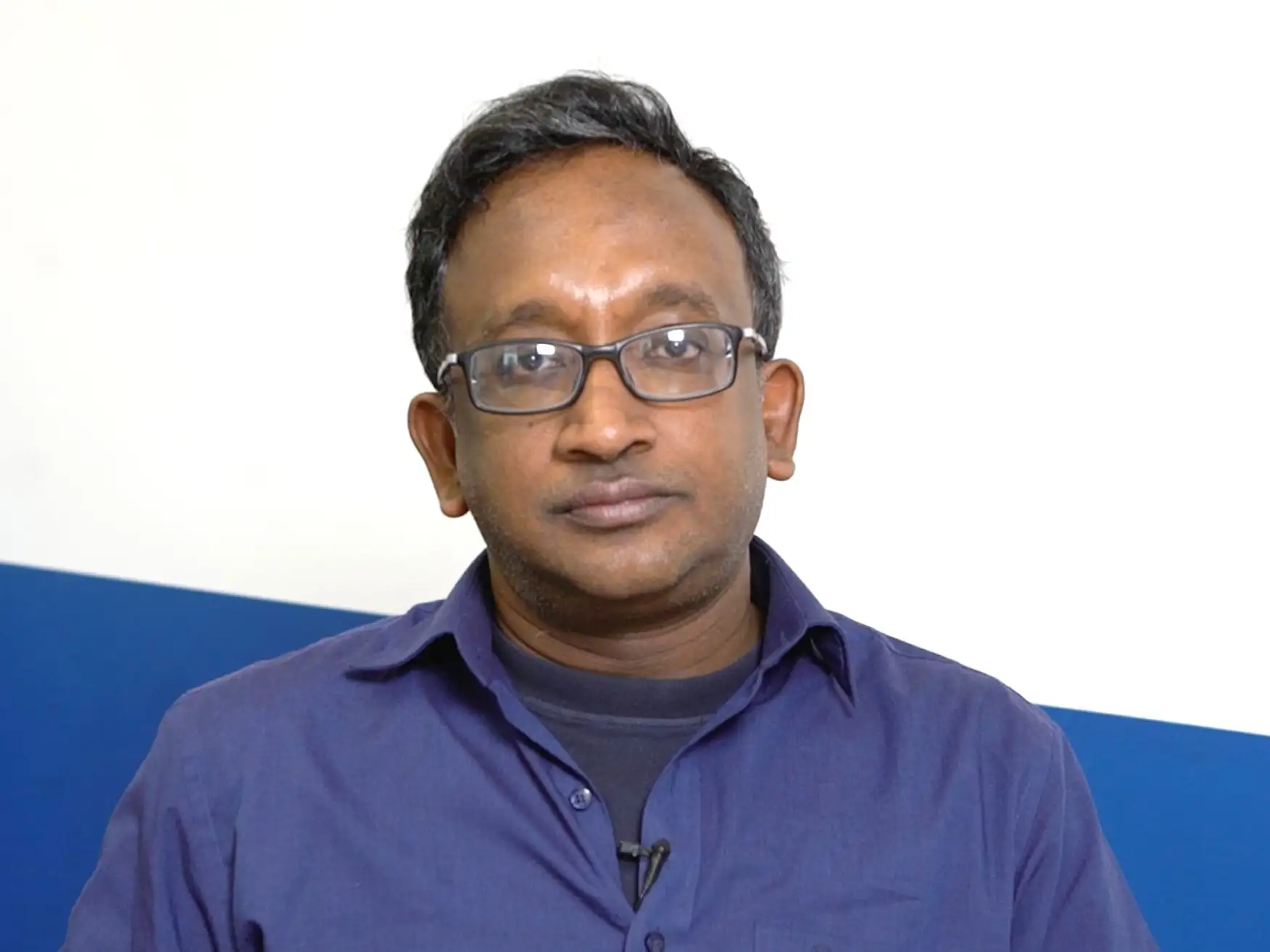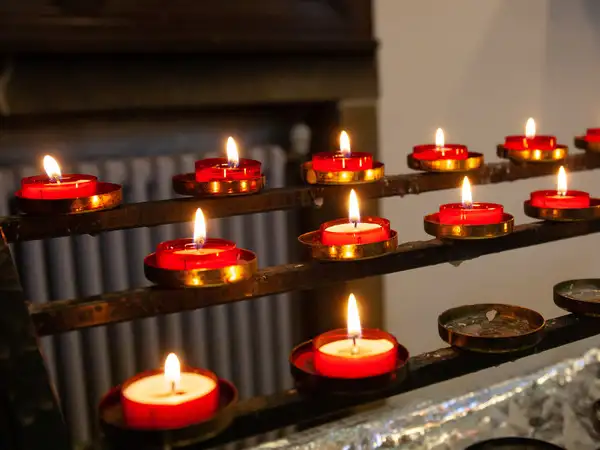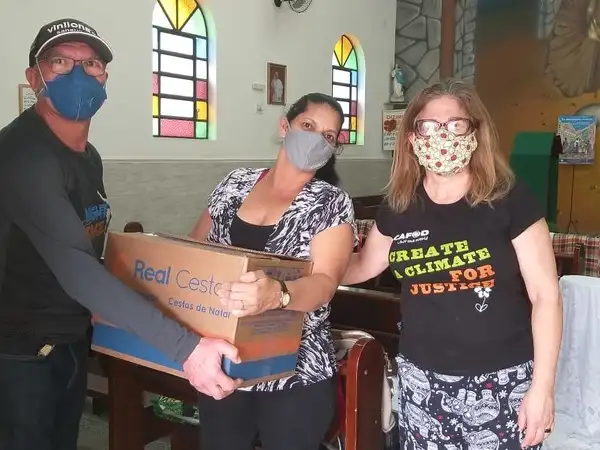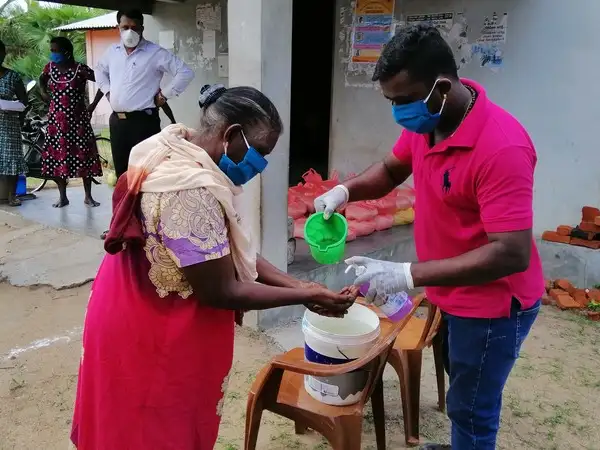

Credit: MONLAR
Sri Lanka used to be food-sufficient, with farmers using traditional agricultural methods. But the so-called 'Green Revolution' encouraged farmers to become heavily dependent on imported fertilisers, pesticides and seeds. This has resulted in damage to the soil, deforestation and loss of biodiversity. The climate crisis is making the situation even worse.
Land grabbing by the ruling elite – seized for private investment, military use and tourism – has become a major issue, resulting in displacement of rural communities and loss of livelihoods. The country’s previously abundant aquatic resources have also been depleted, and the marine environment damaged by destructive and greedy over-exploitation.
A better world needs all of us. That’s why CAFOD has worked in Sri Lanka since the 1980s, encouraging better governance, social cohesion and sustainable food production, as well as challenging the unjust policies inflicted upon communities due to the country’s debt. We're working together with local experts, in solidarity with communities facing injustice, so that every family has the opportunity to flourish.
Our impact in 2024
We supported 17,663 people to raise their voices and speak out about their needs and aspirations, as well as input their ideas into the decision-making process for just and sustainable development in Sri Lanka.
We made it possible for our partner MONLAR (Movement for Land and Agricultural Reform) to carry out research in consultation with scientific experts at the University of Peradeniya. Together, we supported grassroots farmers, applying traditional knowledge, to build a solid evidence base and strong case for organic fertilisers as effective, money-saving and ecologically friendly. Their findings are now informing national-level discussions at the Ministry of Agriculture.
We worked together with 3,178 citizens and faith leaders to promote constructive collaboration between different ethnic and religious groups, and defuse potential conflicts. Alongside peace-building activities, citizen groups are transforming the lives of over a thousand other people in their local communities with legal advice for survivors of conflict and human rights abuses, as well as helping families grow food for home consumption or for sale in local markets.
Why CAFOD works in Sri Lanka
Sri Lanka is a vibrant tropical island with immense biodiversity – a wide range of plants and animals – and has a lot of potential to thrive. Nevertheless, poverty has persisted.
This injustice disproportionately affects the country’s largest ethnic minority, Tamils in the north and east, who lost out heavily during the terrible civil conflict which raged from 1983 to 2009. As CAFOD partner Jehan Perera explains: “Although the war ended in 2009, the roots of conflict – discrimination, unaccountable state violence and the denial of power-sharing – have not been adequately addressed. This is the peacebuilding challenge to which we are committed and for which we need to mobilise continued support.”
Tensions between different ethnic groups are being exacerbated by troublemakers who, to further their own agendas, seek to scapegoat minorities for every disaster that impacts the country.
Meanwhile, however, the interests of the Sinhalese – though they 'won' the conflict and comprise an overwhelming majority of the electorate – have all too often been woefully ill-served by their politicians, especially in the rural areas. Even before COVID, entire communities found themselves trapped in situations of structural disadvantage, and shut out from the growing socio-economic opportunities available to those with the means to access them.
Then arrived the financial crisis in 2022 when Sri Lanka became unable to service its hugely high levels of international debt, run up largely by disastrous government policies and political corruption. The measures imposed by the International Monetary Fund (IMF) to ensure resumption of repayments, at high interest rates, have impacted most heavily on the poor.
Increasingly, families are unable to feed their children properly. Children are dropping out of education because their families can’t afford to keep them in school. The government schools and hospitals on which they depend were already struggling. They can’t be better resourced with so much money going out of the country to private creditors like wealthy banks and institutions based in countries like the UK.
How we're responding
In his encyclical Laudato Sì, Pope Francis flagged up a crucial truth about poverty and social deprivation. “We are faced not with two separate crises, one environmental and the other social, but rather with one complex crisis which is both social and environmental. Strategies for a solution demand an integrated approach to combating poverty, restoring dignity to the excluded, and at the same time protecting nature.”
CAFOD’s partners have enthusiastically embraced Pope Francis’ concept of integral ecology.
Through them we are providing ecology training to help Sri Lankan farmers transition to sustainable practices, so as to achieve dignified livelihoods, regeneration of the environment and food sovereignty for communities. We are also supporting small-scale farmers and fishworkers to form networks to share and debate their experiences and difficulties, and campaign for ecologically-friendly, sustainable approaches to food production.
As people realise they can make a difference by acting together as citizens, they come to understand the importance of participatory democracy and holding governments accountable to the people who elected them. This was seen in the results of the elections held 2024-25 which were a triumph of democracy over authoritarianism.
The Sri Lankan government spends huge amounts on debt repayment. This means they are not able to invest in young people. The economy cannot grow. This, in turn, forces the country to
borrow even more loans at high interest rates. The cycle continues, with catastrophic impacts on the population. Approximately 25 per cent of the population are now living in poverty, up from 13 per cent three years ago. The debt and the IMF measures are also being used as a pretext to push forward on land grabbing and destruction of natural resources, and stamping out oppositional voices.
CAFOD has supported its partners to build a vibrant campaign for debt cancellation in Sri Lanka, as part of our international campaign for a more just and equitable global debt system. Listen here to Sandun Thudugula who’s been co-ordinating the activities in Sri Lanka: Voices of Change Episode 10: Sandun Thudugala.
Small-scale farmers and fisheries in rural communities are among the most badly affected by the country’s debt. Our partners have organised workshops to discuss and teach a fuller understanding of the implications, so that these communities learn together about how it impacts them and their livelihoods. Armed with this understanding, communities can now work towards a better future through advocating for policy changes to enable them to provide adequately for their families and continue to send their children to school.
News from Sri Lanka
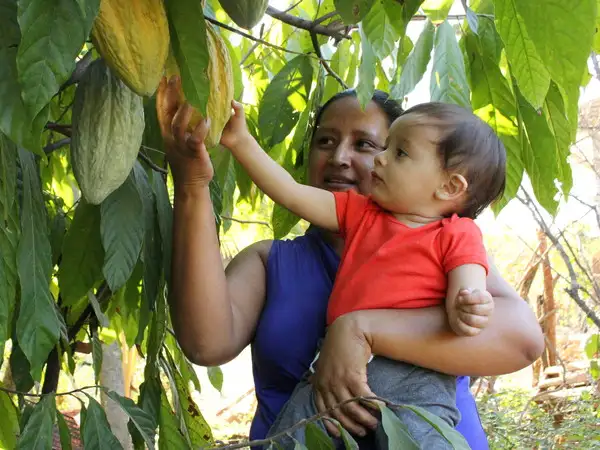
What we do
CAFOD is the official aid agency for the Catholic Church in England and Wales.
With your help, we reach out to people living in hard-to-reach places, in war zones and those who are discriminated against.


